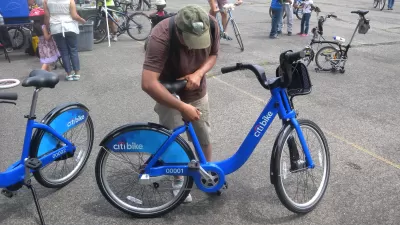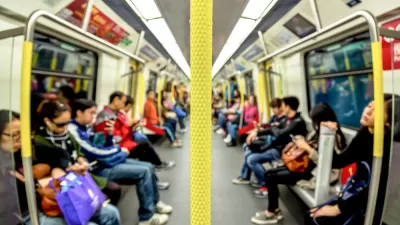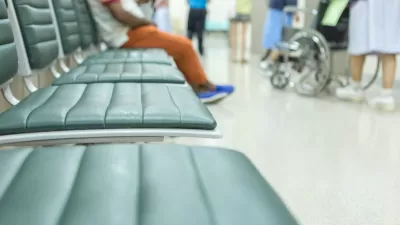Experts say a deep understanding of communities and access to rich local data are necessary for improving transit service for all segments of society.

Since its launch ten years ago, users have taken over 60 million rides through New York's Citi Bike program. But demographic data shows the system "has been used largely by men," writes Skip Descant, indicating a disconnect between Citi Bike riders and New York City's general population. Sarah M. Kaufman, associate director of the New York University Rudin Center for Transportation Policy and Management, says "it’s important to understand, study and advocate for equity in transportation, since many systems don’t do a good job of serving everyone in a community."
"'Women overwhelmingly feel unsafe or experience harassment or assault on public transportation,' said Kaufman.'“Those numbers are often much worse for women of color, women who are disabled and trans women.'" With transportation equity becoming a "central goal" for many transportation agencies, experts argue that "a deep understanding of communities and access to rich data" are essential to making progress toward more equitable transportation systems. "Without enough data, one can't know who's able to use a system effectively and how they use it. Kaufman suggested society needs well-established data standards that pick up on the nuances of how people travel" in order to understand how to equitably serve them. Understanding travel patterns and transportation needs also requires deep engagement with local communities that goes beyond public meetings to establish trust.
FULL STORY: Experts: Data, Community Trust Needed for Equitable Transit

Planetizen Federal Action Tracker
A weekly monitor of how Trump’s orders and actions are impacting planners and planning in America.

Restaurant Patios Were a Pandemic Win — Why Were They so Hard to Keep?
Social distancing requirements and changes in travel patterns prompted cities to pilot new uses for street and sidewalk space. Then it got complicated.

Maui's Vacation Rental Debate Turns Ugly
Verbal attacks, misinformation campaigns and fistfights plague a high-stakes debate to convert thousands of vacation rentals into long-term housing.

In California Battle of Housing vs. Environment, Housing Just Won
A new state law significantly limits the power of CEQA, an environmental review law that served as a powerful tool for blocking new development.

Boulder Eliminates Parking Minimums Citywide
Officials estimate the cost of building a single underground parking space at up to $100,000.

Orange County, Florida Adopts Largest US “Sprawl Repair” Code
The ‘Orange Code’ seeks to rectify decades of sprawl-inducing, car-oriented development.
Urban Design for Planners 1: Software Tools
This six-course series explores essential urban design concepts using open source software and equips planners with the tools they need to participate fully in the urban design process.
Planning for Universal Design
Learn the tools for implementing Universal Design in planning regulations.
Heyer Gruel & Associates PA
JM Goldson LLC
Custer County Colorado
City of Camden Redevelopment Agency
City of Astoria
Transportation Research & Education Center (TREC) at Portland State University
Jefferson Parish Government
Camden Redevelopment Agency
City of Claremont





























